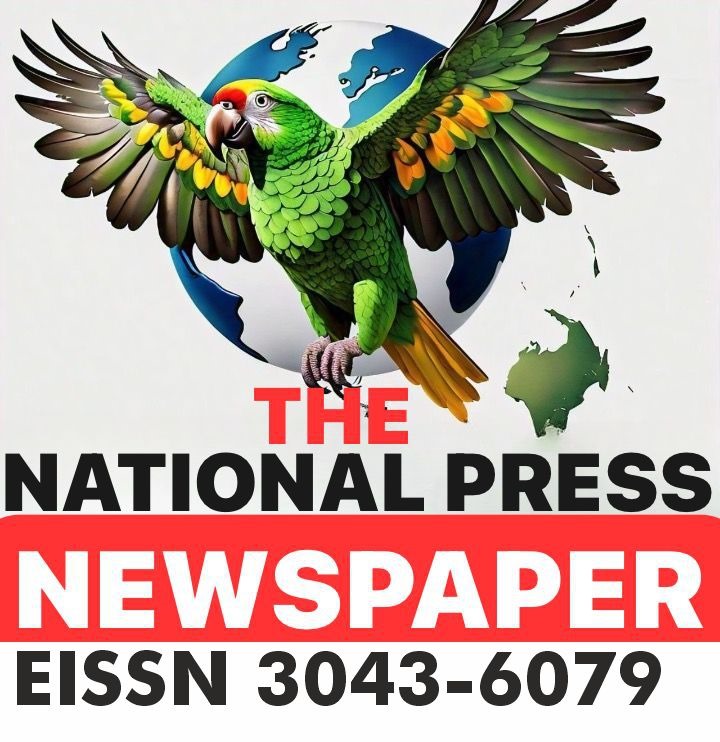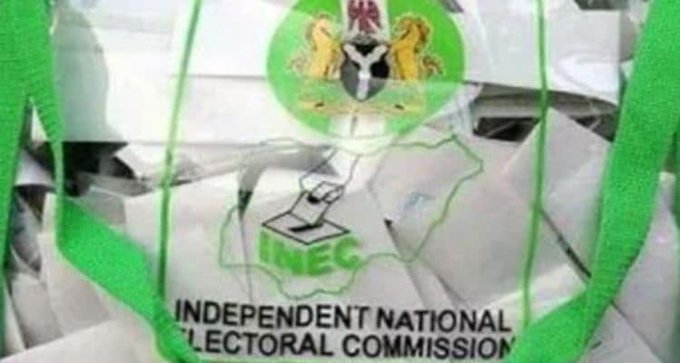The economic reforms of the Tinubu administration, including the market-based pricing of premium motor spirit (PMS) and adjustments to foreign exchange policies, have saved the country approximately N930 billion in previously lost revenue, according to Finance Minister and Coordinating Minister of the Economy Wale Edun.
The N930 billion represents about five per cent of revenue losses addressed through these measures.
Edun told the Senate Committee on Appropriations during a briefing on the 2025 Appropriation Bill on Thursday that the administration inherited a precarious economy but has implemented targeted reforms that have now placed the country on a recovery trajectory.
“The administration inherited an economy on the brink, but through targeted reforms, we are now on a recovery path,” he said.
He cited the 100 per cent implementation of the 2024 recurrent expenditure as proof of government’s ability to meet its obligations despite the challenging economic environment.
Nigeria’s Gross Domestic Product (GDP) growth, he said, exceeded three per cent last year; a figure he described as a milestone, particularly when compared to developed nations struggling to achieve one per cent growth.
Gross Domestic Product is the monetary value of all finished goods and services made within a country during a specific period.
Edun said the administration’s focus “remains on growing revenues, improving fiscal discipline and ensuring sustainable economic growth for all Nigerians.”
Enhanced performances by revenue-generating agencies such as the Nigeria Customs Service and the Federal Inland Revenue Service, he added, were driving consistent revenue growth critical for achieving the government’s development goals.
Edun explained that the 2025 budget is planned to build on the successes of the previous year, prioritising increased tax-to-GDP ratios and higher national revenues.
He spoke of President Tinubu’s commitment to maintaining fiscal stability, meeting debt obligations, and implementing reforms that foster inclusive growth.
Ministry of Industry, Trade, Investment targets N2.4trn IGR for 2025
Industry, Trade and Investment Minister, Jumoke Oduwole, who took her turn yesterday to brief the Senate committee, said N2.4 trillion has been projected as its internally generated revenue (IGR) for the 2025 fiscal year.
But she described the sum of N3.844 billion allocated for capital expenditure in the Ministry’s 2025 budget as inadequate to fund its programmes and plans aimed at driving the Renewed Hope Agenda of the Tinubu Administration.
She appealed for the support of the lawmakers for additional funding to enable the Ministry align its projects according to the objectives spelt out in the National Development Plan and the Medium Term Expenditure Framework.
Oduwole said her ministry remained committed to achieving its vision of promoting economic growth, creating jobs and generating wealth as well as formulating and implementing policies and programmes that attract foreign direct investment, boost industrialisation, increase trade and export as well as encourage the development of enterprises.
The ministry is currently implementing strategic policies, plans and programmes targeted at economic recovery and growth for employment generation and wealth creation for the generality of Nigerians, she said.
She named some of the programmes and policies of the Federal Government being promoted as the Nigeria Industrial Revolution Plan, the National Enterprise Development Programme, the Trade Policy of Nigeria (2023-2027) and the Nigeria investment Policy (2023-2027).
The Minister stressed that within the framework of the National Development Plan (NDP), the Ministry has continued to diligently pursue the creation of an enabling environment for the Nigerian Industry, Trade and Investment sectors to enhance Ease of Doing Business;
The Implementation of Nigeria Industrial Revolution Plan (NIRP) to rapidly enhance industrial capacity and improve competitiveness within the Sector;
Sustain the development of the Micro, Small, and Medium Enterprises (MSMEs) Sector to achieve industrial development and growth;
To proactively attract domestic and foreign investments; and facilitate enhanced trade and market access to stimulate investments and encourage patronage of made-in-Nigeria products and services.
She told the lawmakers that in 2023, the capital budget for the ministry was N2.86 billion with 97 per cent of the amount released and utilised, while in 2024, capital allocation to the ministry increased to N8.364 billion with only 40 per cent released.
She said while the Ministry projected a budget of about N2.3 trillion for the 2025 financial year, it was allocated the sum of N11.752 billion with capital budget pegged at N3,844, 978,433, and an internally generated revenue projection of N2.4 trillion for the financial year.
She said that N6,451,613,046 was allocated to personnel, while N1, 455,545,652 was allocated to overhead expenditure.
Related News
Tinubu’s reforms save Nigeria N930bn, drive economic recovery, says Edun
Saudi trip yields investments, jobs for Nigerians – Edun
Edun: FG launches wheat subsidy to enhance food security
The Minister said further that the Ministry intends to generate revenue through weights and measures department, commercial law department (trademark, patents and designs), export fumigation, sales of government assets, rent, backward integration programme certificate, late notification, tender fees, application fees for certificate of acceptance and certificate of acceptance fees.
She maintained that within the available resources, the Ministry is committed to ensuring the speedy attainment of the “Renewed Hope Agenda” of the Tinubu administration, adding that without the continuous support and guidance of the National Assembly, the Ministry would not be able to achieve much.
Members of the National Assembly Joint Committee on Industry, Trade and Investment in their remarks lamented the failure of the country to curb cross border banditry and smuggling despite the official closure of its borders.
The Chairman, Senate Committee on Industry, Senator Francis Fadaunsi (PDP – Osun East), in his remarks, said it was better for the borders to be fully opened and not technically closed.
He said the exit of Niger Republic and Chad from the Economic Community of West African States (ECOWAS) with attendant opening of their borders on the Nigerian side has worsened the menace of insecurity across the affected states and by extension, compounded the nation’s economic woes.
Fadaunsi said: “Border closure is hampering economic fortunes of the country, because rather than curb smuggling, it encourages it.
“For example, on rice production alone, the largest percentage of four million tonnes shortfall is being smuggled into the country since local producers are only producing three million tonnes out of the expected consumption rate of seven million tonnes.”
Another member of the committee, Hon Fatima Talba, said as far as she and her constituents in Nangero/Potiskum, Yobe State are concerned, the borders are opened and not closed.
“Going by free movement of people and even criminals across the borders, it is time for us to stop fooling ourselves with border closure,” she said.
In his remarks on the border closure, Hon Paul Kalejaiye, representing Ajeromi/ Ifelodun Federal Constituency of Lagos State in the House of Representatives, wondered the form of border closure policy Nigeria is implementing.
“We need to even ask the question on the border policy being implemented. Are all borders across the nation closed or those closed are from a segment of the country?” he asked.
The Chairman, Senate Committee on Trade and Investment, Senator Suleiman Sadiq Umar (APC – Kwara North), urged the Minister to liaise with the Presidency on the way out of the border closure issue.
Senator Umar also directed the ministry to go back and correct some errors observed in the documents submitted to the joint committee, particularly the sum of N59 billion erroneously written as payment for N50 billion project, which the ministry blamed on typographical error.
AGF targets revenue shortfall with reforms
On her part, Accountant General of the Federation (AGF) Oluwatoyin Madein says she has launched an aggressive revenue drive to tackle the revenue shortfall of government.
This initiative, according to her, improved funding for personnel costs, overheads and capital projects last year.
Dr. Madein spoke while receiving members of the House of Representatives Committee on Public Accounts during their oversight visit to the Treasury House in Abuja.
The Director of Press in the Office of the Accountant General of the Federation (OAGF), Mr. Bawa Mokwa, said the AGF acknowledged the challenges posed by low revenue remittances from some government-owned enterprises.
She said significant progress has been made in the preparation and auditing of the Federal Government of Nigeria’s Consolidated Financial Statement since her assumption of office in May 2023.
“In collaboration with the Office of the Auditor-General of the Federation, we have prepared and audited the financial statements up to December 31, 2019. The 2020 and 2021 statements have been completed, while work on 2022 is ongoing,” she was quoted as saying.
Besides, the OAGF has proposed enhancements to the Government Integrated Financial Management Information System (GIFMIS) and the Integrated Personnel and Payroll Information System (IPPIS).
These improvements, she noted, would ensure more robust financial management with the cooperation and support of the National Assembly.
In response, the Chairman of the House Committee on Public Accounts, Hon. Bamidele Salam, urged the AGF to expedite the submission of the 2022 Consolidated Financial Statement of the Federation, as required by the 1999 Constitution.
He stressed the need for comprehensive measures to address revenue leakages, suggesting automation and regular audits as critical tools to improve remittances by government-owned enterprises.





